Text and photos: Salim Tayssir Melhem
Layout: Marie Friis
5 February 2024
Today, more than half a million refugees live in Jordan. One of them is Ghazwan who fled from Iraq to Jordan with his son. In Jordan he received the necessary help from DIGNITY’s partner Institute for Family Health, which helps refugees with trauma.
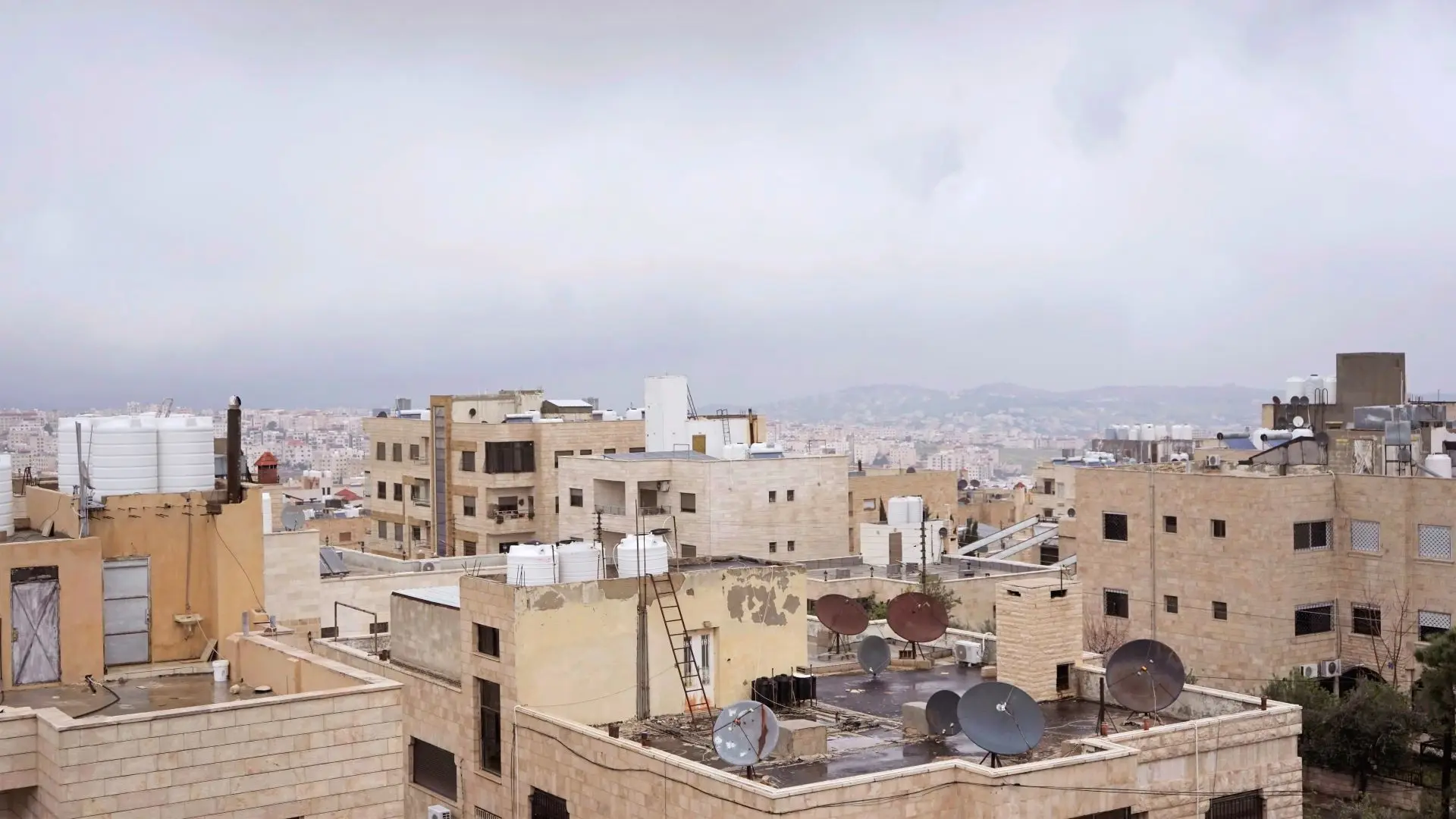
JORDAN. DIGNITY has partnered with the Institute for Family Health since 2008. They are headquartered in Amman, Jordan. Photo: DIGNTIY
50-YEAR-OLD GHAZWAN SMILES AND GETS HIS PHONE OUT OF THE POCKET. He presses play on the screen and turns the phone away from his body. In the video, you see a classroom with students applauding enthusiastically at one satisfied student.
»That’s my son«, he says proudly, explaining that his son is now academically among the best in class and that he is prospering. So is Ghazwan.
This has not always been the case. In 2006, Ghazwan had to escape Iraq after an assassination attempt on him. He worked in a ministry of the government at the time, was married, and lived a quiet life.
»I felt as if I were about to lose my son. He was having a hard time, reacted aggressively, and hit other children. When he started school, he also had difficulty reading and writing. He isolated himself. I felt powerless«.
Ghazwan Al-Sardawi
That changed when Ghazwan began receiving threats because of his job, where he was responsible for conducting courses that determined whether civil servants could be promoted. He was threatened several times.
»Powerful people had an interest in their friends, political colleagues and family members passing the tests. Early one morning, I received a threat over the phone. The man on the phone said he was going to kill me. I had 10 days to leave the country. Otherwise, I would be killed«.
Ghazwan, who belongs to the Mandaean minority in Iraq, went to the police and reported the threat. The police advised Ghazwan to leave the country immediately.
»I loved my country. I had a son and a wife there«, he says. He only made the decision to leave Iraq when armed men in a black car passed him on the street, rolled down the window and shot at him.
»I laid on top of my son and hugged him to protect him. My only thought was: What would happen to my son if I died? We got out of there alive. After that I made the decision to flee with my son«, he says.
Mentally broken
Ghazwan’s wife did not want to leave, so they divorced. After fleeing to Jordan, he began to feel worse mentally as he could not find a job. Ghazwan’s son was also psychologically affected by the flight and the new life in Amman.
»I felt as if I were about to lose my son. He was having a hard time, reacted aggressively, and hit other children. When he started school, he also had difficulty reading and writing. He isolated himself. I felt powerless«, says Ghazwan.
It was one of the school’s teachers who recommended that Ghazwan seek help from the Jordanian NGO King Hussein Foundation – Institute for Family Health (IFH).
»In 2019, we both entered a course of treatment here. I had a really hard time at first. Slowly I got my hope back. The psychologist understood my situation«, says Ghazwan.
DIGNITY has collaborated with IFH since 2008. IFH is present in 12 different locations in Jordan. They also work in one of the world’s largest refugee camps for Syrian refugees, the Zaatari Camp.
The vast of majority psychosocial services to refugees in Jordan is provided by NGOs, says director of IFH Ibrahim Aqel.
»We offer torture survivors services on several levels, including case management, psychosocial support, both individually and in group sessions, physiotherapy and medical services if needed«, says Ibrahim Aqel.
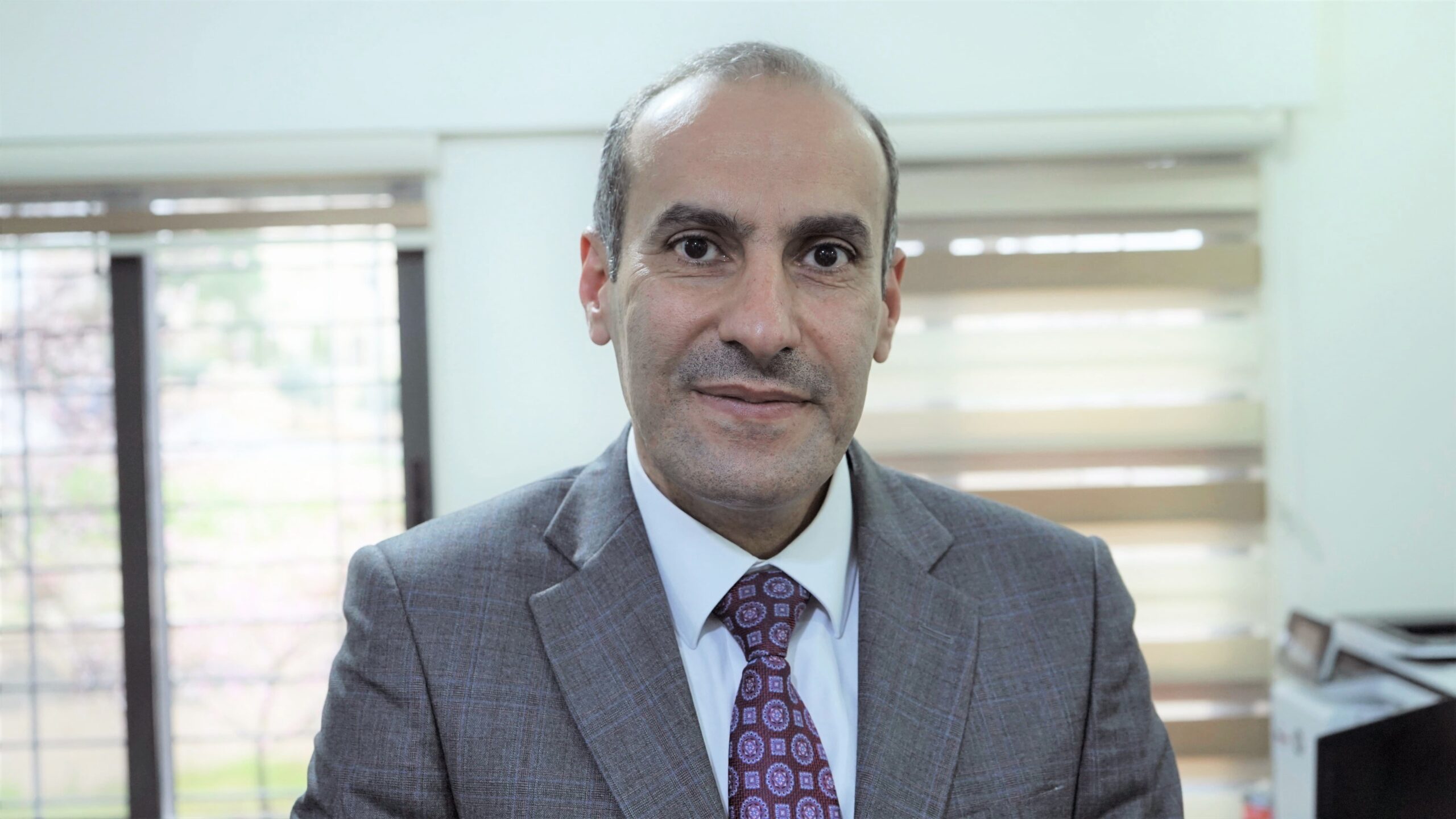
HELP. Trauma assistance to refugees in Jordan is mainly offered by NGOs, explains the director of the Institute for Family Health, Ibrahim Aqel. Photo: DIGNITY
The Economy and Covid
There are currently more than 720.000 registered refugees with The United Nations High Commissioner for Refugees (UNHCR) in Jordan. Predominantly from Syria, with large groups from Iraq, Yemen, Sudan and Somalia. Palestinian refugees in the country are not included in this figure.
Many suffer from trauma from war, flight and torture. DIGNITY research has previously shown that among Syrian refugees, 43 percent suffer from PTSD symptoms, 40 percent from depression, while 26 percent have anxiety.
»Before, the patients came to us discreetly. Now torture survivors ask for treatment because they realize that it helped some of their friends or family members.«.
Areej Samreen, Psychologist from Amman and Harvard universities.
One of the psychologists who helps traumatized refugees on a daily basis is Areej Samreen. She has worked at IFH since 2007.
»Refugees need psychosocial support to get back on their feet. If we want refugees to become self-supporting, to get a job or an education, we must first help them with their trauma. I am a Palestinian refugee myself, and I know what it means to be traumatized. Without help, the trauma will be passed on to the next generation«, says Areej Samreen.
She points out that many traumatized refugees in Jordan continue to suffer from the after-effects of Covid-19.
»The economy is also having a negative effect on our patients now. We see that donors are cutting back everywhere and pushing funds towards Ukraine. There should be no distinction between refugees in need«, says Areej Samreen.
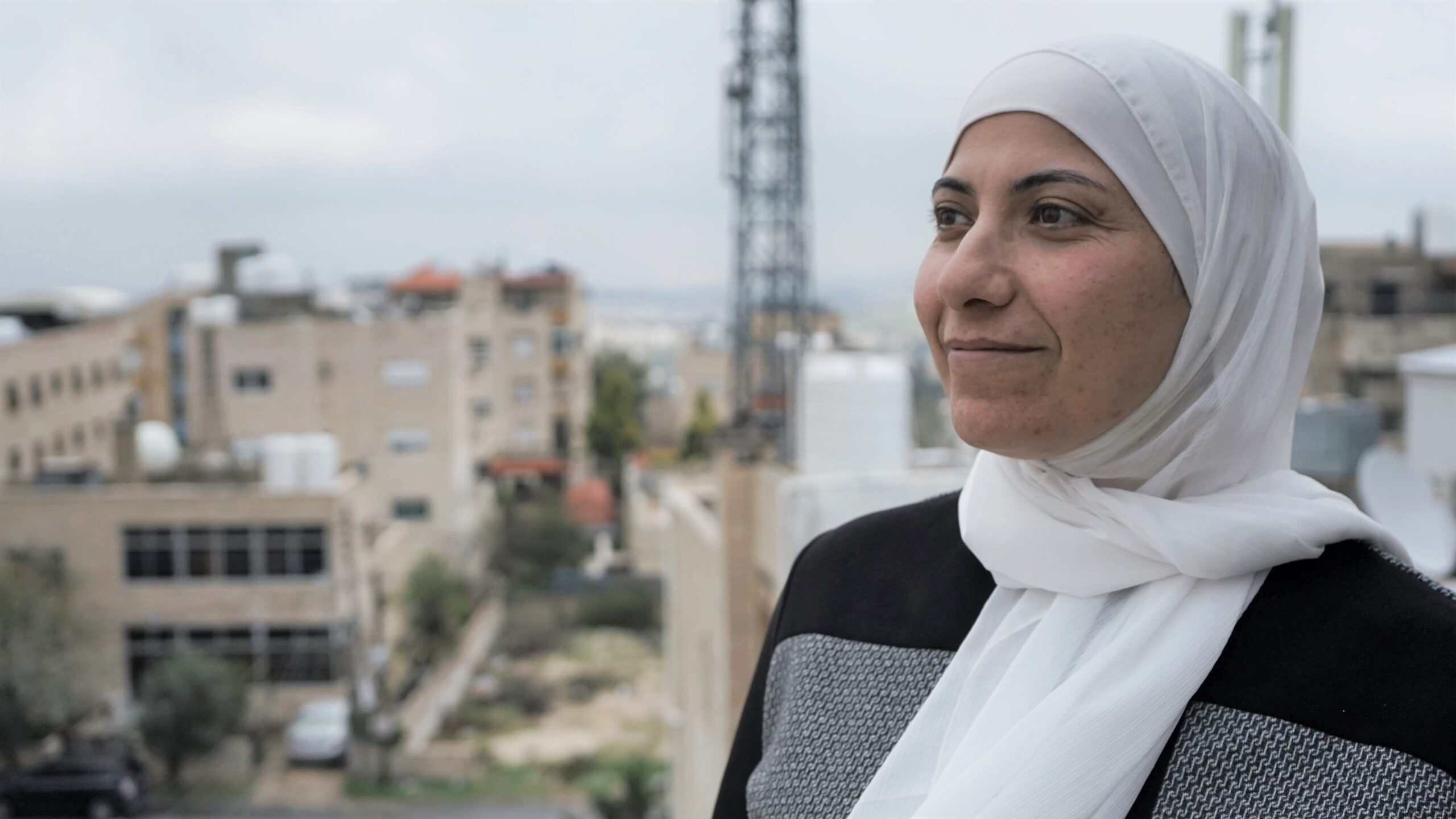
STIGMA. There has been a growth of awareness in Jordan’s urban population. Traditional stigma around mental health issues has been reduced, says psychologist Areej Samreen. Photo: DIGNITY
A positive change
Many of IFH’s patients find it difficult to pay for transport to and from the treatment centre or to find care for their children when in treatment.
»Refugees often have pain related to their trauma. The Pain School approach makes us look at the whole patient and not just the physical parts. How does she sleep? How is her social life? How does the psyche affect her body and pain? If we don’t deal with it all together, the pain will come back«.
Fathia Zorba, Physiotherapist and Team leader.
Looking back at recent years, Areej Samreen believes that progress has been made in combatting mental illness in Jordan.
»There has been a change in awareness among people in the bigger cities where the stigma around mental health has decreased. You are no longer perceived as crazy when you go to a psychologist. Before, the patients came to us discreetly. Now torture survivors ask for treatment because they realize that it helped some of their friends or family members. There has been a cultural change«, she says, adding that some patients now bring their children or partners to the treatment at IFH.
»We have launched campaigns and a lot of information meetings aimed at our target groups. We also have a good dialogue on mental health with various sectors and government ministries in Jordan. We have come a long way, but there is still a lot of work to be done. We have a big challenge with the parts of the population who lives outside the big cities, where many of the negative perceptions about mental illness still exist«, says Areej Samreen.
We must look at a person as a whole
IFH also has a team of physiotherapists who help traumatized refugees deal with physical pain in everyday life. They use a treatment method called ‘Pain School’, which DIGNITY has developed in collaboration with IFH.
»Refugees often have pain related to their trauma. The Pain School approach makes us look at the whole patient and not just the physical parts. How does she sleep? How is her social life? How does the psyche affect her body and pain? If we don’t deal with it all together, the pain will come back«, says Fathia Zorba.
One of the physiotherapists is Fathia Zorba. Many of her patients struggle with back pain. They sleep badly and suffer from nightmares. It must be dealt with before they can get better, she says.
»We have group courses where eight women are together. Some have lost children, others have war injuries, some are torture survivors. During the exercises, they share their feelings and experiences, and they are no longer alone because they are part of a community here. I am proud and happy when I see that development in our patients«, she says.
She emphasizes that trust in the therapists is crucial for the patients to feel better.
»I always begin each session by telling something about myself. It is important that they trust me as we work with the body. You must be highly motivated to work with traumatized refugees. If you’re not passionate about the work, you must find another job«, says Fathia Zorba and highlights one patient story in particular, which means a lot to her:
»I treated a woman who had fled from Syria. She was severely depressed due to trauma. She did not talk to her children and was very isolated. We got her into Pain School and she gradually got better. After a few months, her husband came in at the office and wanted to thank us for the help, because his wife now felt better«.
Why exactly does that story mean so much to you?
»We assisted someone who holds great significance for many others, including her children and husband. The change we created together had a positive effect on all the people around her, and that makes me proud and happy«, says Fathia Zorba.
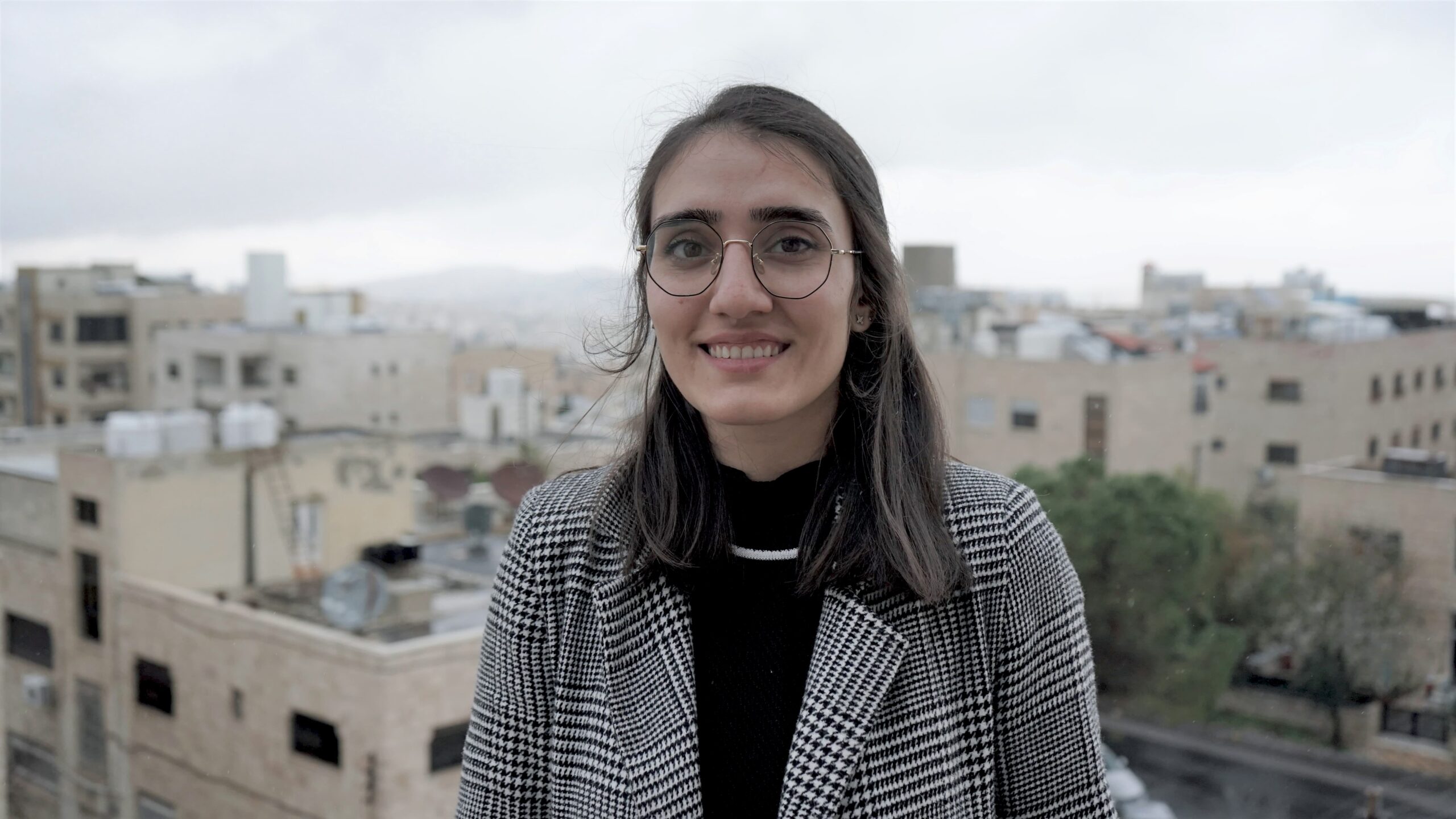
CONFIDENCE. At the beginning of each session, I tell a little about myself. It is important that my patients trust me, says physiotherapist Fathia Zorba. Photo: DIGNITY
Towards Australia with new dreams
The fact that the help from IFH not only benefits the individual patient, but the whole family, is something that Iraqi Ghazwan can relate to.
»We dare to dream again. I have dreams for my son. Also for myself. I dream of working with media in Australia or as a translator«.
Ghazwan Al-Sardawi
As his son gradually made progress in treatment, it affected him too.
»Everything changed. I also talked about my trauma with my psychologist twice a week. Both the flight, the shooting incident in Iraq and the divorce. IFH also helped me financially. I could now buy some toys for my son«, says Ghazwan and explains that his son was diagnosed with ADHD and given glasses, which meant that he is now able to see what is written in the books at school.
»We got the right support. We even did some of the physical exercises together. I went from hating this world to having renewed hope«.
Now Ghazwan and his son are waiting for the final formalities so they can move to Australia, where they have family.
»I arrived at this point with the help of IFH. But my own motivation has been a crucial condition. Today, my message to all countries in the world is: refugees deserve help. We must ensure their rights and financial help so that they can focus on getting better«, he says and continues:
»We dare to dream again. I have dreams for my son. Also for myself. I dream of working with media in Australia or as a translator«.
*Ghazwan has now been granted asylum in Australia.
Danish-Arab Partnership Program and Pain School
For more than 15 years, DIGNITY has collaborated with the Institute for Family Health (IFH) to offer treatment to refugees living in Jordan.
Many refugees experience chronic pain and severe stress as a result of their war experiences. Therefore, in close collaboration with IFH, DIGNITY has developed a treatment manual: DIGNITY Physiotherapy Pain School.
The treatment takes place in groups and touches on topics such as pain, stress, sleep and daily activities.
IFH is supported by the Danish-Arab Partnership Program (DAPP), which is Denmark’s cooperation programme with partners in the Middle East and North Africa. The focus countries in DAPP are Morocco, Tunisia, Egypt and Jordan.
In July 2022, the second phase of DAPP began, which extends to 2027.
DIGNITY leads the new consortium of organisations, which also includes the Institute for Human Rights, International Media Support and KVINFO

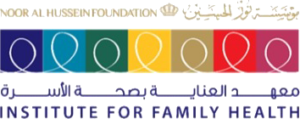




© 2024 DIGNITY. All rights reserved.
